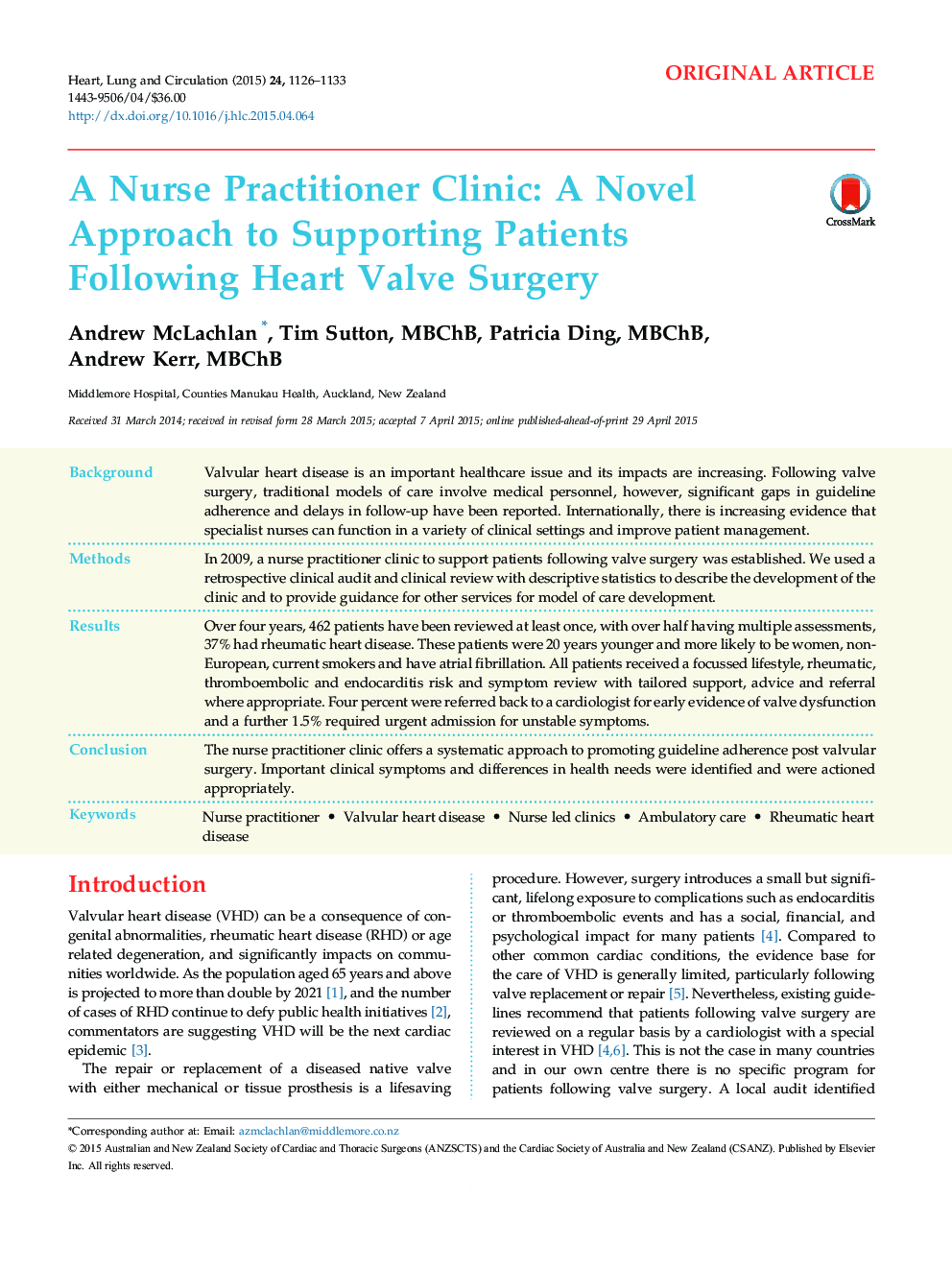| Article ID | Journal | Published Year | Pages | File Type |
|---|---|---|---|---|
| 2917388 | Heart, Lung and Circulation | 2015 | 8 Pages |
BackgroundValvular heart disease is an important healthcare issue and its impacts are increasing. Following valve surgery, traditional models of care involve medical personnel, however, significant gaps in guideline adherence and delays in follow-up have been reported. Internationally, there is increasing evidence that specialist nurses can function in a variety of clinical settings and improve patient management.MethodsIn 2009, a nurse practitioner clinic to support patients following valve surgery was established. We used a retrospective clinical audit and clinical review with descriptive statistics to describe the development of the clinic and to provide guidance for other services for model of care development.ResultsOver four years, 462 patients have been reviewed at least once, with over half having multiple assessments, 37% had rheumatic heart disease. These patients were 20 years younger and more likely to be women, non-European, current smokers and have atrial fibrillation. All patients received a focussed lifestyle, rheumatic, thromboembolic and endocarditis risk and symptom review with tailored support, advice and referral where appropriate. Four percent were referred back to a cardiologist for early evidence of valve dysfunction and a further 1.5% required urgent admission for unstable symptoms.ConclusionThe nurse practitioner clinic offers a systematic approach to promoting guideline adherence post valvular surgery. Important clinical symptoms and differences in health needs were identified and were actioned appropriately.
